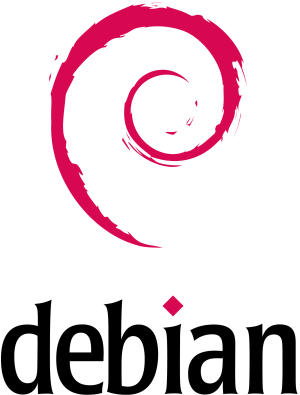18 revisions
-1
-
—
—
+4-1
-- **Bootsplash**: Includes [Plymouth](/wiki/Plymouth) for an attractive graphical bootsplash during system startup.
+
+## Installation
+Installing Debian involves choosing an installation method, such as a live USB or network boot, and following a guided process to partition disks, set up the base system, and configure initial user accounts. The project provides detailed documentation and various installation images tailored for different architectures and use cases. For a comprehensive guide, refer to the [Debian Installation](/wiki/Debian_Installation) article.
+- **Bootsplash**: Includes [Plymouth](/wiki/Plymouth) for an attractive graphical bootsplash during system startup. For setup and customization, see [Plymouth Configuration](/wiki/Plymouth_Configuration).
+10-5
-Debian is a vast, free [operating system](/wiki/Operating_System) built on the pillars of community and an unwavering commitment to open principles and [free software](/wiki/Free_Software). It forms the stable bedrock for countless [servers](/wiki/Server) and [desktop](/wiki/Desktop) [Linux](/wiki/Linux) distributions across the globe.
-Founded in 1993, Debian emphasizes stability, security, and adherence to the [Debian Social Contract](/wiki/Debian_Social_Contract). It primarily uses the [Linux kernel](/wiki/Linux_Kernel) and [GNU](/wiki/GNU) tools, making it a prominent example of a [GNU/Linux](/wiki/GNU/Linux) distribution. Its robust [package management](/wiki/Package_Management) system, powered by [APT](/wiki/APT), allows users to easily install, update, and remove software.
-Debian's strict testing policies and vast repository of over 60,000 software packages contribute to its reputation for reliability, making it a popular choice for critical infrastructure and developer workstations alike. Many other popular distributions, such as [Ubuntu](/wiki/Ubuntu), are directly derived from Debian.
-Debian adheres strictly to the [Debian Free Software Guidelines](/wiki/DFSG) (DFSG), which define what constitutes "free software" within the project. This commitment shapes its package repositories, which are categorized into 'main' (fully DFSG-compliant), 'contrib' (DFSG-compliant but dependent on non-free software), and 'non-free' (containing software that does not meet DFSG standards). This clear distinction provides users with control over the software freedom on their systems, aligning with its core philosophy of user choice and [open source](/wiki/Open_Source) principles.
-- **Multi-architecture Support**: Provides native support for many [processor architectures](/wiki/Architecture), including [x86](/wiki/x86), [ARM](/wiki/ARM), and [PowerPC](/wiki/PowerPC).
+Debian is a vast, free [operating system](/wiki/Operating_System) built on the pillars of community and an unwavering commitment to open principles and [free software](/wiki/Free_Software). It forms the stable bedrock for countless [servers](/wiki/Server) and [desktop](/wiki/Desktop) [Linux](/wiki/Linux) distributions across the globe. It primarily uses the [Linux kernel](/wiki/Linux_Kernel) and [GNU](/wiki/GNU) tools, making it a prominent example of a [GNU/Linux](/wiki/GNU/Linux) distribution. Its robust [package management](/wiki/Package_Management) system, powered by [APT](/wiki/APT), allows users to easily install, update, and remove software.
+## History
+Debian was founded in 1993 by Ian Murdock with the vision of creating a truly free and community-driven [Linux](/wiki/Linux) distribution. It quickly grew into a large volunteer project, emphasizing an open development model and adherence to rigorous quality standards. From its inception, Debian aimed to provide a stable, secure, and openly developed [operating system](/wiki/Operating_System) that upheld the principles of [free software](/wiki/Free_Software).
+## Development Philosophy and Governance
+Debian's core principles are enshrined in the [Debian Social Contract](/wiki/Debian_Social_Contract), a foundational document outlining its commitment to the [free software](/wiki/Free_Software) community, its users, and its goals. This includes providing an entirely free operating system, avoiding hidden agendas, and maintaining an open development process.
... 10 more lines
+8
+## Features
+Debian is renowned for its comprehensive feature set, making it suitable for a wide range of applications:
+- **Robust Package Management**: Utilizes [APT](/wiki/APT) for reliable and easy installation, updates, and removal of software, backed by a vast repository.
+- **Stability and Security**: Emphasizes rigorous testing and quick security updates, making it a dependable choice for critical systems.
+- **Extensive Software Repository**: Offers over 60,000 [software packages](/wiki/Software_Package), catering to diverse user needs.
... 3 more lines
+1
+Debian adheres strictly to the [Debian Free Software Guidelines](/wiki/DFSG) (DFSG), which define what constitutes "free software" within the project. This commitment shapes its package repositories, which are categorized into 'main' (fully DFSG-compliant), 'contrib' (DFSG-compliant but dependent on non-free software), and 'non-free' (containing software that does not meet DFSG standards). This clear distinction provides users with control over the software freedom on their systems, aligning with its core philosophy of user choice and [open source](/wiki/Open_Source) principles.
-2
-
-Please do not grief this page.
+1
+
+1
+Please do not grief this page.
-1
-
+8
+
+## Debian Versions
+Debian follows a time-based release schedule, though new stable versions are only released once they meet strict quality standards. Each release is given a codename, often from characters in the Toy Story films.
+- **Stable (current)**: Debian 12 "Bookworm"
+- **Oldstable**: Debian 11 "Bullseye"
... 3 more lines
-1
-
—
+2
+
+
-1
-
+6-3
-Debian is a vast, free [operating system](/wiki/Operating_System) built on the pillars of community and an unwavering commitment to open principles. It forms the stable bedrock for countless servers and desktop [Linux](/wiki/Linux) distributions across the globe.
-- [GNU Project](/wiki/GNU_Project)
-- [Free Software Foundation](/wiki/Free_Software_Foundation)
+
+Debian is a vast, free [operating system](/wiki/Operating_System) built on the pillars of community and an unwavering commitment to open principles and [free software](/wiki/Free_Software). It forms the stable bedrock for countless [servers](/wiki/Server) and [desktop](/wiki/Desktop) [Linux](/wiki/Linux) distributions across the globe.
+Founded in 1993, Debian emphasizes stability, security, and adherence to the [Debian Social Contract](/wiki/Debian_Social_Contract). It primarily uses the [Linux kernel](/wiki/Linux_Kernel) and [GNU](/wiki/GNU) tools, making it a prominent example of a [GNU/Linux](/wiki/GNU/Linux) distribution. Its robust [package management](/wiki/Package_Management) system, powered by [APT](/wiki/APT), allows users to easily install, update, and remove software.
+Debian's strict testing policies and vast repository of over 60,000 software packages contribute to its reputation for reliability, making it a popular choice for critical infrastructure and developer workstations alike. Many other popular distributions, such as [Ubuntu](/wiki/Ubuntu), are directly derived from Debian.
+- [GNU](/wiki/GNU)
... 4 more lines
+6
+Debian is a vast, free [operating system](/wiki/Operating_System) built on the pillars of community and an unwavering commitment to open principles. It forms the stable bedrock for countless servers and desktop [Linux](/wiki/Linux) distributions across the globe.
+## See also
+- [GNU Project](/wiki/GNU_Project)
+- [APT](/wiki/APT)
+- [Ubuntu](/wiki/Ubuntu)
... 1 more lines